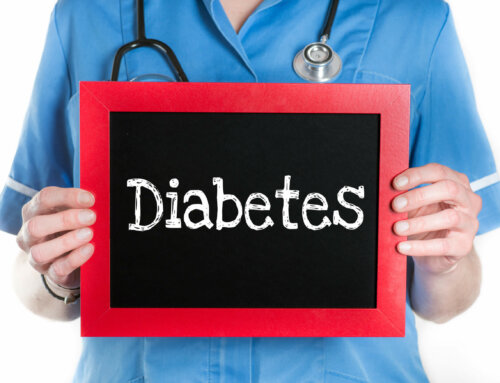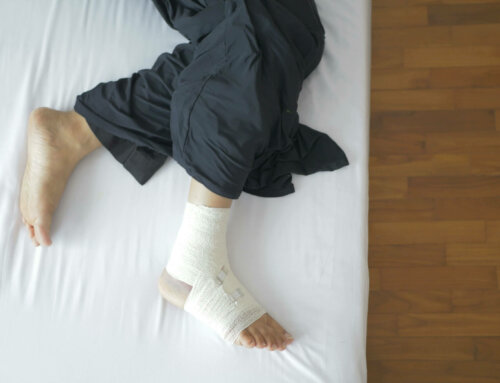We are well into the cold and flu season that usually starts with the change in weather in late September, early October although cold viruses are around us all year long. As mentioned in previous newsletters having diabetes can reduce your immune system especially when your blood sugars are elevated. Increased blood sugars lower the ability of your white blood cells to fight off germs and combat infections. This compromise also causes you to become sicker when you do get sick requiring a longer recovery period. Certain factors can help you avoid the misery of a cold.
What is a cold?
Cold viruses tend to begin in the nose. Usually what happens is an infected person who is in close proximity to you coughs or sneezes and allows for air borne virus particles to lodge in your nose. Your hands and fingers are also a problem since they touch viruses on innate objects like door knobs, computers, telephones, etc. Without realizing it you then touch your nose, mouth, eyes or tear ducts (mucosal membranes) and the virus travels to the nose. Most people will develop a cold once the membranes in the nose are exposed. Try to stay at least 3 feet from someone who you think or know has a cold.
Why doesn’t everyone exposed to the virus get a cold?
The cold symptoms are not caused by the virus but the symptoms are related to the person’s immune system. Dr. Sheldon Cohen from Carnegie Melon University has studied who gets colds and who does not for over 30 years. He states that “colds are cytokine diseases.” What happens is cytokines, which are protein molecules, are produced in response to the virus by your own immune system. Cytokines are proinflammatory and cause the symptoms from the virus. Dr. Ronald Turner from University of Virginia Medical School states that some people have a “genetically programmed” response and some experience a highly effective immune response showering them with symptoms. The bottom line is sometimes you may have the response to the virus and other times you may be spared. Many people suffer up to 4 colds a year so learn some possible prevention tips.
Tips to help you stay safe from colds:
- Wash your hands and no hand touching your face – Sounds old school especially with all these new hand sanitizing products but basic soap and water always wins and it is the cheapest. Doing it often is the trick and yes you can sing Happy Birthday to time yourself when washing. In a pinch when no sink is around you can use sanitizers but try not to only rely on them. Remember cold and flu viruses enter through the nose, mouth and eyes.
- Sleep time – According to Dr. Cohen sleep time and sleep efficiency is needed to keeping colds at bay. Seven to eight hours for an adult seems to be the correct number but they need to be hours that you are truly asleep not reading, watching T.V. or tossing around in bed. It does work to help the body’s recovery system and repair cycle.
- Think sparkling clean – on all shared surfaces- Think about stair rails, counter tops, door knobs, car doors, cell phones which may sit in the gym, on the bus, anything that is considered hand to hand spreading. You can use bleach or the new more natural and gentle cleansers. Rubbing alcohol kills bacteria and germs on contact.
- Hit the gym – Studies in the British Journal of Sports Medicine have shown that doing aerobic exercise for a minimum of 20-30 minutes at least 5 days a week will boost your cold fighting ability. When you exercise you speed up the heart rate and oxygen supply by breathing deeply; this helps to fight off infection by increasing virus fighting cells. Too much intense or strenuous exercise can actually reduce your immune system and cause inflammation so stay moderate.
- Natural foods and maybe supplements – Yes, think fruits and vegetables to get all the nutrients and cold fighting antioxidants you need. If you know you really avoid these foods, consider supplements that offer similar properties.
- Keep the air fresh – opening windows for a short time even during the winter can help reduce stagnant air. Circulate fresh air even in the car to reduce viruses. Walk outside when weather permits.
- Drink hot beverages like herbal tea and coffee – Certain teas including Echinacea, astragalus, and licorice root can help the immune system and decrease virus and bacteria growth. The coffee link is anti-microbial as well.
- Think spices when cooking – Garlic, rosemary, oregano, thyme and hot peppers have great anti bacterial properties, help to detoxify and taste good.
- Hydrate – Increasing fluids will help your membranes stay moist and discourage viruses from lodging in mucous membranes. Plain water will do the trick and try to avoid caffeine or alcohol. Alcohol will dehydrate you and lower your immune function. Consider a humidifier if you live in a dry climate.
- Avoid crowds when you can – Mass transit including buses and trains increase your chances. Hanging out in concerts, movies, malls increase your risk of viruses and the flu. Be reasonable when you can avoid these things but live your life.
- Think Probiotics – Multiple studies have shown that your gut is involved in most of your over all health. Up to 42% of people decreased their cold risk by supplementing with probiotics or eating foods like yogurt or kefir.
- Reduce your stress or at least your response to stress – Things like unemployment, major conflicts, marital problems or any long term under lying stress can wear you and your immune system down. You cannot avoid it but you need to deal with it.
- Keep positive – Multiple studies have proven that a positive attitude and upbeat personality even when exposed to viruses and flu did not get sick as often and when they did get sick it was not as dramatic. There was no scientific reason but it is worth a try to stay cheerful.
The good news is that if your blood sugars are controlled you will generally recover from a cold within a week whether you treat it or not. Treating is for the symptoms not the virus. If you see you are still feeling sick and not improving with elevated blood sugars never think you are bothering your physician. Let them be the judge of what you need to do next. I will follow up with flu and vaccine information along with remedies to reduce symptoms in another newsletter. Stay healthy!
NOTE: Consult your Doctor first to make sure my recommendations fit your special health needs.







Leave A Comment